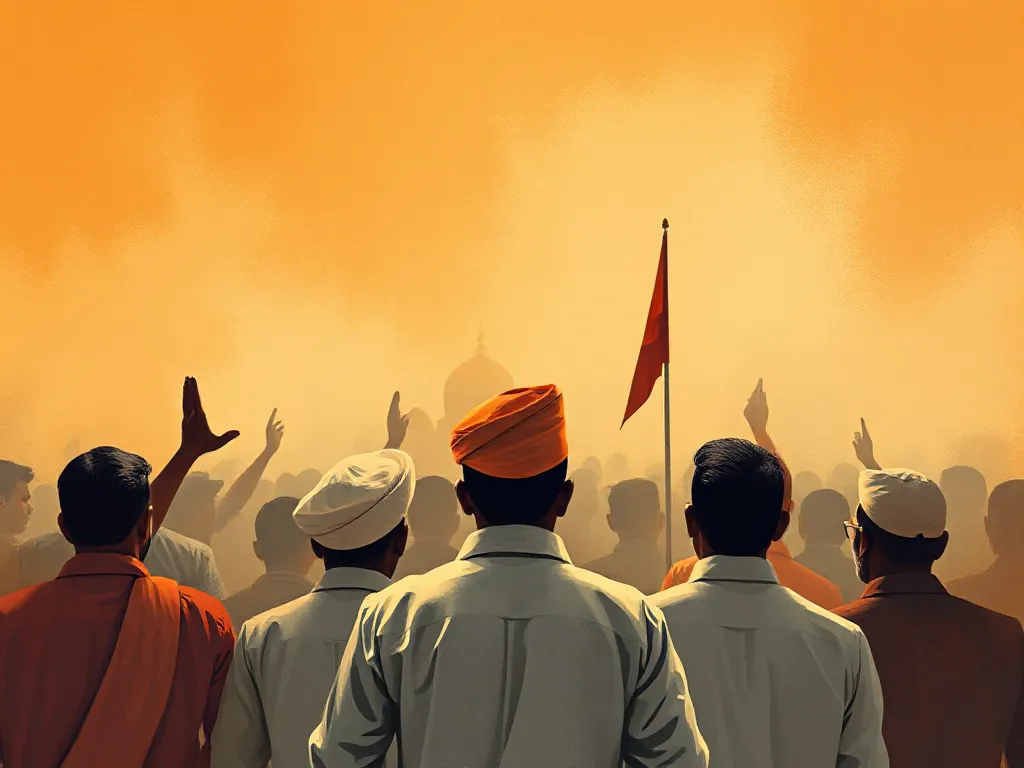
The Role of Political Parties: Exploiting Ethnic Sentiments for Votes?An analysis of the interplay between identity politics and electoral strategies in India.
Introduction
In India’s vibrant and diverse democracy, political parties play a pivotal role in shaping the electoral landscape. However, the exploitation of ethnic sentiments—based on caste, religion, language, or region—has become a dominant strategy for garnering votes. This practice, while effective in mobilizing support, raises critical questions about its impact on national unity, governance, and the democratic process.
Ethnic Sentiments in Indian Politics: A Historical Perspective
1. Legacy of Identity Politics
India’s colonial history set the stage for the politicization of ethnic identities. The British divide-and-rule policyheightened divisions along caste and religious lines.
- Post-Independence Trends:
- The linguistic reorganization of states in 1956 institutionalized identity-based demands.
- Caste politics gained momentum with the rise of regional parties like the Bahujan Samaj Party (BSP) and movements like the Mandal Commission (1980s) advocating for OBC reservations.
(Source: Indian History Congress)
2. Regional and Ethnic Assertions
Parties like the Shiv Sena in Maharashtra and AIADMK in Tamil Nadu have historically leveraged ethnic sentiments to consolidate regional support.
Modern-Day Exploitation of Ethnic Sentiments
1. Caste-Based Mobilization
Caste remains a powerful tool for electoral mobilization, particularly in states like Uttar Pradesh and Bihar.
- Strategies:
- Promising caste-specific benefits, including reservations and welfare schemes.
- Highlighting historical grievances to consolidate vote banks.
- Examples:
- The Yadav vote base targeted by the Samajwadi Party (SP).
- The focus on Dalit empowerment by the Bahujan Samaj Party (BSP).
(Source: Election Commission of India Reports)
2. Religious Polarization
Religious identities have become increasingly central to political discourse, often leading to polarization.
- Examples:
- Campaigns centered around issues like cow protection and temple construction.
- The rise of majoritarian rhetoric in election campaigns.
(Source: PRS Legislative Research)
3. Regional Identity Politics
In states like Assam and West Bengal, regional identity is frequently invoked to address issues like migration and linguistic preservation.
- Impact:
- Parties leverage fears of cultural erosion to rally support.
- Policies targeting specific groups, such as anti-migrant laws, often follow election cycles.
Consequences of Exploiting Ethnic Sentiments
1. Deepening Social Divisions
The constant emphasis on identity fragments communities, making reconciliation more challenging.
2. Policy-Making Bias
Ethnic-centric policies often favor specific groups at the expense of inclusivity, leading to uneven development.
3. Weakening National Unity
Repeated focus on ethnic divisions fosters an “us vs. them” mindset, undermining the idea of a unified nation.
Voices of Concern
- Political Analyst’s Perspective:
- “Ethnic-based mobilization distracts from core issues like economic growth, healthcare, and education.”
- Sociologist’s Insight:
- “While identity politics reflects genuine grievances, its exploitation for votes can hinder long-term social cohesion.”
(Source: Centre for Policy Research)
Pathways to Inclusive Politics
1. Promoting Issue-Based Campaigns
Parties must shift their focus from identity to developmental issues such as job creation, infrastructure, and education.
2. Strengthening Electoral Reforms
Introducing stricter regulations to curb hate speech and divisive rhetoric can foster healthier democratic practices.
3. Enhancing Civic Education
Educating voters about the dangers of divisive politics can encourage informed decision-making.
Conclusion
The exploitation of ethnic sentiments for political gains is a double-edged sword. While it enables targeted electoral mobilization, it risks deepening societal divides and undermining democratic ideals. For India to thrive as a diverse and unified nation, political parties must evolve beyond identity-based politics and focus on inclusive governance. Only then can the world’s largest democracy truly harness its diversity as a strength rather than a vulnerability.


